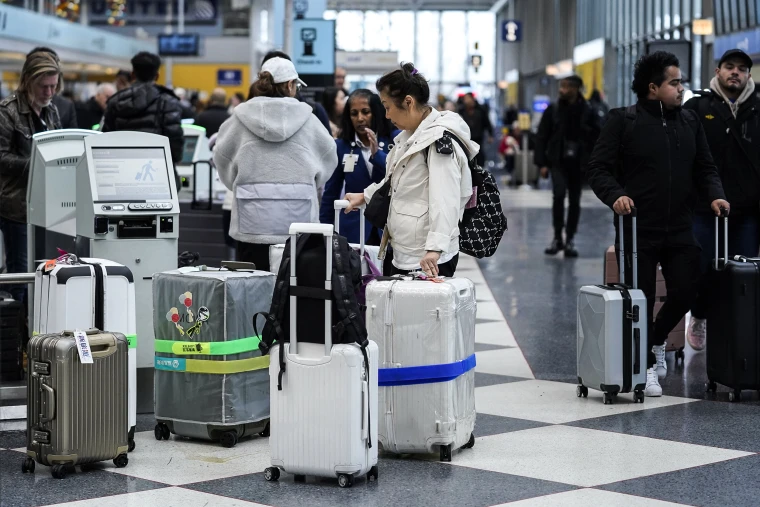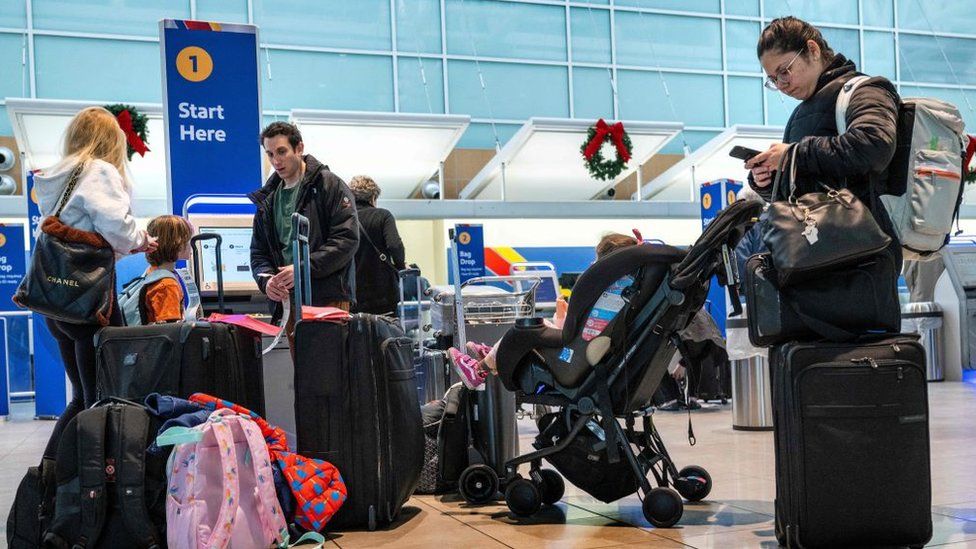
A storm has blown in travel chaos to US airports as millions of Americans join the Thanksgiving rush.
More than 4,800 flights within, into and out of the US have been delayed and almost 70 were cancelled by Tuesday night, according to FlightAware.com.
Rain and strong winds have been buffeting the southern and north-eastern US.
US airlines are expecting nearly 30 million travellers over this week’s holiday period.
The foul weather on Tuesday affected major airports in Chicago, Atlanta, Washington DC, Philadelphia, New York City and Charlotte, North Carolina.
The National Weather Service (NWS) said widespread rain across the eastern part of the US might affect some holiday travel into Wednesday.
Marc Chenard, a meteorologist with the NWS, said the gusty weather would clear by Thanksgiving Day.
From there, some snowfall is predicted for parts of northern New England and portions of Montana, Wyoming and Idaho.
Otherwise, the weather this week was expected to be “quiet”, Mr Chenard said, with temperatures hovering around typical seasonal levels.
This is the weather forecast for North America.
“It should be a pretty nice Thanksgiving for most people,” he said.
In New York City, municipal agencies issued warnings for heavy rains and strong winds.
“We expect this holiday season to be our busiest ever,” the head of the Transportation Security Administration David Pekoske said this week.
But most Thanksgiving travellers will drive to reach their turkey dinner.
The American Automobile Association (AAA) predicts just shy of 50m people will drive 50 miles (80km) or more for this year’s holiday stretch.
This would be the third-highest travel numbers since AAA began tracking holiday travel in 2000 – marking an enthusiastic return to pre-pandemic levels.
The biggest travel days will be on Tuesday and Wednesday as well as the Sunday after Thanksgiving.
US Transportation Secretary Pete Buttigieg said at a news conference on Monday that his department had hired more air traffic controllers and opened new air routes along the US east coast to avoid any major delays.


